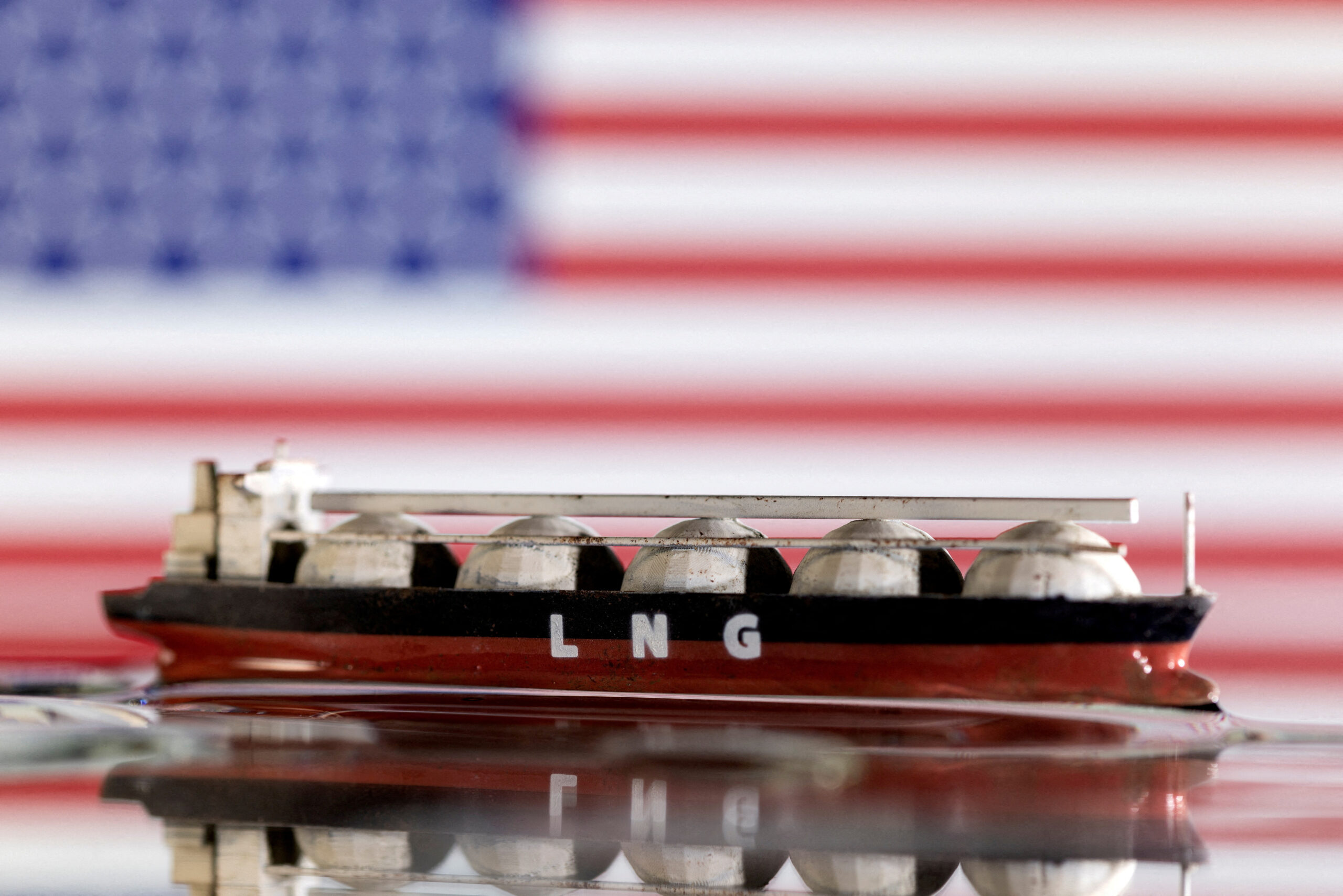Is there a secret to longevity? This health expert says 1,000% yes
In the era of social media, post-COVID, and with mental health at the forefront, a shift is taking […]

The recent decision by US President Joe Biden to halt the approval of new licenses for liquefied natural gas (LNG) export terminals last week, citing climate concerns, brings unwelcome news for Europe. Anticipated substantial growth in US gas imports over the next six years raises questions among experts about the possibility of Europe encountering an excess of investment in LNG terminals.
In recent years, the United States has emerged as the primary supplier of liquefied gas to Europe, constituting 28% of imports in 2021, 43% in 2022, and 46% in 2023, according to analysts at the Institute for Energy Economics and Financial Analysis (IEEAF). With plans for new terminals and increased export capacity, the US aims to reach approximately 238 billion cubic meters in export capacity by 2030, a figure that surpasses European demand for liquefied gases estimated for the same year by 76%.
Taking into account all the LNG terminals already under construction, this capacity is projected to be 76% higher than the anticipated European demand for liquefied gases by 2030. If all planned US LNG terminals were constructed, the capacity would surge to 465 billion cubic meters by 2030, exceeding the estimated gas demand for the entire European continent, which is approximately 392 billion cubic meters.
Amidst growing concerns about a potential surplus of liquefied gas and an excess of infrastructure by 2030, analysts suggest that Europe may face challenges. Shortly after these concerns gained traction, the US President took a precautionary step, putting future investments on hold due to climate security. It’s important to note that the suspension of licenses for new terminals by the White House will not impact those already under construction or in operation but does pose a threat to some of the massive projects planned for the next six years, causing a delay in their execution.
According to analysts, U.S. gas is widely considered abundant and politically acceptable for the Europeans. Europe, instead of prioritizing the transition from Russian gas to renewable sources, is increasingly opting for American gas, a risky move. The analysts argue that an exaggerated reliance, even on a friendly nation, introduces risks.
The preference, according to them, should be for Europe to concentrate on renewable energy rather than escalating dependence on American gas. Analysts assert that the European Union’s choice to shift from Russian gas to American LNG, rather than renewable sources, indicates that its energy security is still contingent on external factors beyond its control, such as the Atlantic hurricane season or Washington’s policies. They believe that the European energy system remains vulnerable and susceptible to unforeseen shocks.
The analysts highlight Russia’s strategy of inflating gas prices even before the invasion of Ukraine, citing tactical moves such as cutting pipeline gas supplies and withholding volumes on spot markets months prior to the attack. Following the invasion, the EU swiftly devised a plan to substitute Russian gas, with American gas emerging as the preferred solution.
While Europe initially held a positive view of American liquefied gas producers, President Joe Biden’s recent actions may moderate that appreciation. Despite the US administration’s earlier promise to promptly review requests for new export capacity after Russia’s invasion of Ukraine, Biden’s announcement raises doubts about the consistency of that commitment.
There is a possibility that, if re-elected, Biden could reconsider and allow the resumption of the process for granting new licenses for liquefied gases. Conversely, if a Republican, like Donald Trump, secures the US presidency, the decision is anticipated to be almost certainly overturned in early 2025.
However, even in the event of a Trump victory, increased gas exports to Europe are not guaranteed. Trump, during his tenure in the White House, demonstrated a willingness to employ trade war tactics to enforce policies, particularly against China, leaving uncertainty about whether similar measures would be taken with the EU.
In a statement, the White House leader explained, “This pause regarding authorizations (for LNG terminals) takes into account what the climate crisis really is: an existential threat.” The announcement comes amid the ongoing presidential campaign. A clash appears inevitable between Joe Biden, who advocated a substantial plan for financing the energy transition in 2022, and Donald Trump, who challenges the fundamental concept of global warming despite scientific consensus.
Biden emphasized his administration’s proactive stance on addressing the climate crisis, stating, “MAGA Republicans (Donald Trump’s catchphrase) are denying the urgency of the climate crisis, condemning the American people to a dangerous future, but my administration will not remain passive. We will not give in to special interests.” Energy Secretary Jennifer Granholm highlighted the need to review export requests considering the latest economic, environmental, and national security analyses as exports increase.
In early December, over 250 organizations and environmental groups, during the COP28 climate conference, urged Biden to halt authorizing new LNG terminals, stressing the environmental impact of natural gas as a fossil fuel.

In the era of social media, post-COVID, and with mental health at the forefront, a shift is taking […]

With its fast speeds and revolutionary potential, 5G stands out as a noteworthy milestone in the field of […]